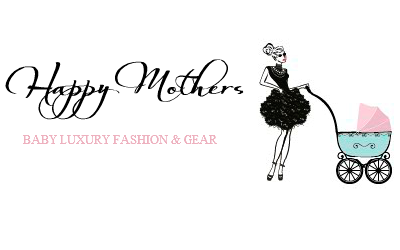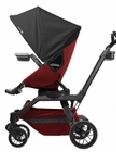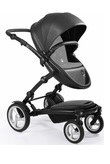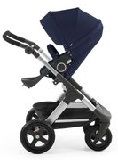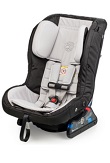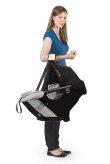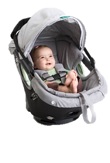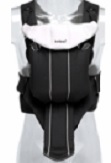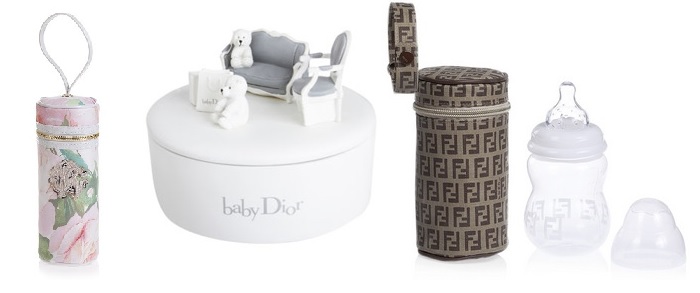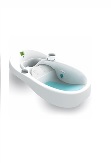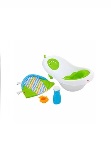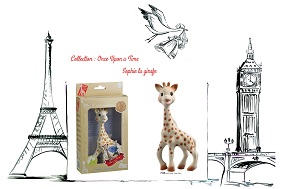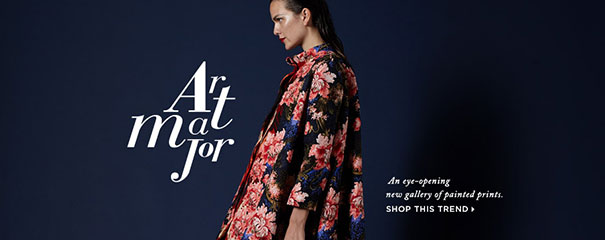Nine Tips To Avoid Becoming A PIA Boarder
We’ve all done it. The thing. The text. The ill-timed question. The snarky remark. The single moment in time that will flip the switch in our barn owner’s brain on their assessment of us: the PIA switch. You are a PIA boarder. The worst. When you’re labeled this way it will forever change your relationship with the barn owner, manager and other boarders. This article will hopefully serve to save you from this fate.
Side note: For the purpose of this article we will assume your horse is kept in a clean, well managed, happy atmosphere where all their needs are met. We will also assume you are a model boarder, someone who takes excellent care of their horse, abides by the rules of the barn, has excellent barn and arena etiquette, and always delivers the board check the day before it’s due. Sounds perfect, right? Even the best boarding barns are still functioning farm machines, grinding day in and day out with a million variables changing every day. And even the best boarder can wind up being a pain in the donkey.
- Don’t assume. Ask.
“Next time you decide not to put Strawberry Cupcake’s elemental armor on please text me so I can come and do it myself.” Well, sis, Strawberry Cupcake has a 4″ winter coat and thanks to our all-you-can-eat hay buffet she’s real thick. So though you feel she needs a liner, a medium, a heavy and a sheet on top, she’s already sweating like Miss Piggy under the stage lights. Listen up, folks, when you arrive at the barn, and things are not how you dictated they should be, please remember that we likely have a reason. Please give us the benefit of the doubt before casting suspicion.
- Take it easy on the weekend staff.
Most of us in the equine industry work 6.5 days a week. Having Saturday and Sunday off would be a dream for most of us. When we do manage to take a Sunday or two a month to see our families, take morning showers, and wear clothes that don’t smell like hay and sweat, please don’t torture the people willing to work that Sunday for us. Weekend help is difficult, if not impossible to find. We frequently need to hire two to four people just to take the whole day off. So sorry if they don’t know you like to ride early on Sundays, so they should feed your horse first. Don’t make special requests, make changes to feeding, talk their ear off, or text them 100 times about the bell boots. People who are willing to work Sundays are made of gold but are paid in pennies. Let this be said: Messing with the weekend staff is dangerous territory.
- Please let our day be done.
In this day and age, one of the greatest burnout factors for barn owners is the never-ending access people have to us via text, email, Facebook, Instagram, Snapchat and Tinder (JK!). The rule of thumb is if it’s late enough in the evening for you to have a glass of wine, and the thought crosses your mind, “Oh, I need to tell the barn owner…” Don’t. Please. Don’t. It’s reasonable to communicate while the barn is open, but after hours is after hours. Most of us work those 6.5 days a week from sun up to past sundown. By the end of our day, we are stick-a-fork-in-it done and don’t give two winks about the red halter you switched out for the green. If you have something that absolutely cannot wait until opening the next day, then set your alarm early and text before opening. We are up and thinking about our day already. You don’t late-night text your barista that you are switching to skim milk in your morning latte, so don’t text the barn owner.
- Keep perspective on Fluffy.
I get it. I really do. Fluffy is the apple of your eye, your best friend, your heart horse. We all love our horses, but truthfully sometimes Fluffy thinks it’s funny to stand on her hind legs. It can be really hard to get a call from the principal about your furbaby, but trust me when I say it’s necessary. If your barn owner politely declines bell boot duty because Fluffy gave her a black eye then do not have the audacity to complain about the lost shoe. It is easy to adapt to our beloved horses’ idiosyncrasies, but you must remember that the person trying to feed, dress and lead your horse has to do so for 20 others. So if Fluffy thinks it’s funny to run from being haltered in turnout then Fluffy gets to wear a halter all the time. No arguments.
- Don’t. Add. Bedding. Ever.
Don’t touch the bedding pile. Don’t smell the bedding pile. Don’t even look at the bedding pile. This is true for hay, grain, and the number of water buckets. There is a method to the madness. Many barns have worked out a very specific chore system that considers labor, cost of supplies, weather and turnout schedule. If you take it upon yourself to interfere with this system without permission, only you will lose. Light on bedding on Tuesday? Probably stripping your stall on Wednesday. Water bucket half empty at feeding time? Probably getting ready to be dumped and cleaned.
- Paddock assignments/turnout schedule is not optional.
Sounds straightforward right? Wrong. The boarders who are the most in tune with the barn’s inner workings are the ones most likely to abuse this. Paddock assignments are based on the horses’ needs. ALL THE HORSES. So maybe the small paddock on the left has less mud in April, but the horse with $500 bar shoes and pads needs that one. Maybe the one on the right has more grass, but the Thoroughbred with Grade 4 ulcers needs that one. Maybe the paddock up front doesn’t have a gate infested with wasps … well, Carol has a bee allergy. We not only have to consider the needs of the horse but also that of their riders. Old ladies and pregnant women get the paddocks closer to the barn. Horses who run if the neighbor gets taken out get surrounded by horses who get ridden at night. Do you see my point? Don’t take it upon yourself to make major changes to your horse’s location or schedule. You will upset everyone’s balance.
- Be kind, seriously!
Ugly truth time. It is very hard to be objective with horses. The owners’ personalities affect our perception of the horse, even if it is subconscious. If you send a rude text it is hard not to think about it when I’m trying to decide if I’m going to go the extra mile and dump Oreo’s water bucket full of “hay tea” for the fifth time today, or if I will leave it as is. Being kind and appreciative of the daily work is something we all crave. In case anyone hasn’t noticed, horses don’t exactly thank us. In fact, most times they are making full eye contact while urinating in the stall we just cleaned. Paying a compliment to the person shoveling your horse’s poop will likely gain your horse an extra chin scratch. If you occasionally bring wine we might even find that lost shoe for you. Just saying!
- Don’t work under the assumption you can’t be replaced.
OK, this one is a little dark. But here is the thing: You are replaceable. Longevity does not give you seniority. Nor does the purchase price of King Rupart III or how many lessons you pay for. Most barn owners have been burned enough in their early careers that they learn the hard way: No one is irreplaceable. So if you find yourself feeling like you are entitled to naughty behavior because of any of these factors you are in for a rude awakening.
- Trust us. Trust us. Trust us.
There is no fame or fortune in running a boarding barn. There is no glamour in shoveling poop. No enjoyment in getting bitten and stepped on. There are no riches, only the golden privilege of spending every hour of our day in the service of horses. Like all farmers we work ourselves to the bone in the extremes of nature; we steward our equine “crop” with love and dedication. We take immense pride in the result of our work, the shiny coats, the quiet barn, the peaceful munching. We are here to care for your horse 24 hours of the day so you can live your lives and enjoy your time with them in happiness. Thank you for trusting us.
Photo: Kimberly Loushin
Original article: https://www.chronofhorse.com/article/nine-tips-to-avoid-becoming-a-pia-boarder
Read in Magazine
You must be logged in to post a comment.
click here to log in





